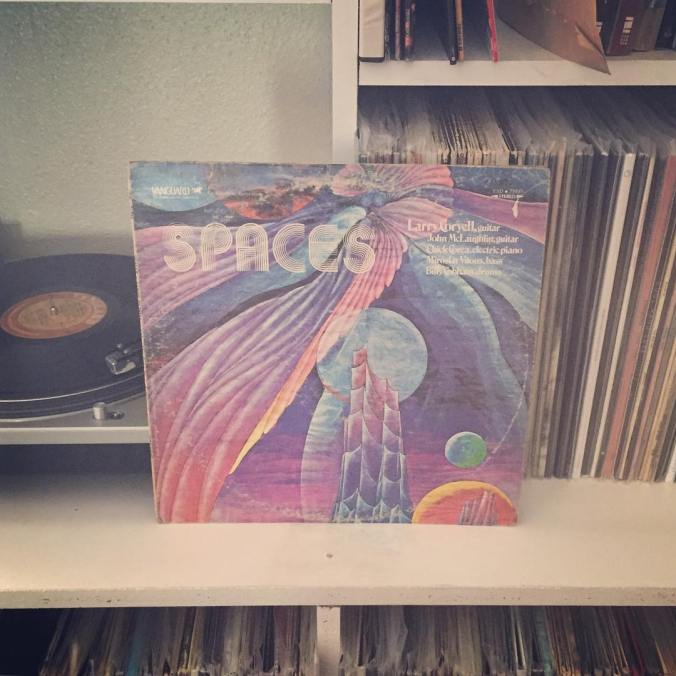 The interesting thing about jazz is that the albums are just as much about the side players as the bandleaders. And if you listen to enough jazz, you start to notice who the major players are.
The interesting thing about jazz is that the albums are just as much about the side players as the bandleaders. And if you listen to enough jazz, you start to notice who the major players are.
And while you might not readily recognize Larry Coryell’s name, you might recognize some of the people playing with him on Spaces.
Across this record, Coryell is accompanied by John McLaughlin, Chick Corea, Billy Cobham, and Miroslav Vitouš, all of which had respectable careers as bandleaders in their own right.
John, Chick, and Billy were also core members of Miles Davis’ band during his indelible electric period, and during the recording of Spaces, the three were fresh off of Bitches Brew. While Miroslav never played with Davis’s ensemble, he was a frequent collaborator with Joe Zawinul, who was essentially Miles’ lieutenant.
If a bandleader were to surround himself with such monstrous fixtures in the jazz community, they better have the goods to back it up—especially in the throes of one of the most exciting periods in jazz history. And in the late 60s to early 70s, all four of those players were each on an unbelievable hot streak. Who is Larry Coryell to nominate himself into the canon of jazz fusion greats?
Within the opening bars, he is not found wanting. He keeps pace with McLaughlin with ease, leading the band through their paces like Django Reinhardt on LSD.
That specific comparison is important. Because while a lot of early 70s fusion tried to divorce itself from the conventions of jazz, Spaces celebrates its history. Coryell’s playing style is steeped in the gypsy jazz and Dixieland of decades prior. It stands in stark contrast with fiery iconoclasm of McLaughlin’s violent psychedelia. The second track, “René’s Theme,” is an acoustic gypsy jazz duet that sounds like it could have been released in the 1940s.
This sense of classicism keeps the record from flying off into space while the rest of the group undoes the threads of jazz. Miroslav bows his bass furiously. John scrapes on his strings in free time. Billy beats his drums relentlessly. And in the face of this chaos, Larry is the group’s unwavering center, like the point of a compass as its pencil stretches outward. And while this record might not be as far out as other great fusion records, it would be a mistake to overlook it.